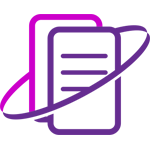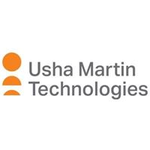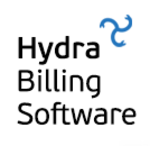Description

Billingbooth

Smart Workshop
Comprehensive Overview: Billingbooth vs Smart Workshop
As of my last update in October 2023, Billingbooth and Smart Workshop are software solutions designed to cater to specific business needs. Here's a comprehensive overview:
a) Primary Functions and Target Markets:
Billingbooth:
- Primary Functions: Billingbooth is a cloud-based billing and invoicing solution that primarily helps businesses automate their billing processes. Key features typically include recurring billing, invoice creation, customer management, payment tracking, and report generation.
- Target Markets: Billingbooth is aimed at small to medium-sized enterprises (SMEs) across various industries that require a streamlined approach to managing invoices and payments. It is particularly beneficial for service-based businesses that need to handle recurring invoices and subscription-based billing.
Smart Workshop:
- Primary Functions: Smart Workshop is usually a type of Workshop Management Software (WMS), focusing on managing operations in workshops, garages, or similar work environments. It typically includes features like job scheduling, inventory management, customer relationship management, invoicing, and reporting.
- Target Markets: The primary market for Smart Workshop is automotive repair shops, machine workshops, and similar businesses that need to manage both their administrative tasks and the physical flow of work within their facilities.
b) Market Share and User Base:
-
Billingbooth: Given its focus on billing and invoicing, Billingbooth competes with many similar products in the SME sector. The market for invoicing solutions is quite saturated, so while Billingbooth may have a devoted user base, its market share would likely be smaller when compared to giants like QuickBooks or Xero.
-
Smart Workshop: Smart Workshop would cater to a niche market, primarily within the automotive and machine repair industries. In this specialized sector, market penetration often depends on feature sets that directly address industry-specific needs, and while it may not have a vast user base compared to broader business applications, it likely holds a solid position within its niche.
c) Key Differentiating Factors:
-
Industry focus: The most significant difference is the primary focus of each product. Billingbooth is widely applicable across various industries due to its general billing solutions, while Smart Workshop is specifically tailored for workshop management, addressing both administrative and operational challenges faced by workshops.
-
Feature Sets: Billingbooth specializes in automating billing and invoicing processes, while Smart Workshop would include systems that manage not just administrative functions but also the operational workflow tools necessary for workshops, like job tracking and parts inventory management.
-
Integration Capabilities: Billingbooth may be able to integrate with broader financial software suites or enterprise resource planning (ERP) systems, offering significant value for businesses integrating invoicing with their broader financial systems. In contrast, Smart Workshop might integrate more with other workshop-specific tools or automotive systems, focusing on enhancing operational efficiency.
-
End-User: Billingbooth caters to a broader category of business professionals, primarily within finance departments of SMEs, whereas Smart Workshop is tailored for business owners and managers within workshops who need detailed insights into both financial and operational perspectives of their business.
These differentiating factors highlight the distinct nature of each software package, targeting specific operational needs and market segments.
Contact Info

Year founded :
Not Available
+44 20 3096 9888
Not Available
United Kingdom
http://www.linkedin.com/company/billingbooth

Year founded :
Not Available
Not Available
Not Available
Not Available
Not Available
Feature Similarity Breakdown: Billingbooth, Smart Workshop
To provide a comprehensive feature similarity breakdown for Billingbooth and Smart Workshop, let's examine these products across the specified criteria.
a) Core Features in Common
Both Billingbooth and Smart Workshop offer a suite of features designed to support businesses in managing operations effectively. Here are some likely core features they have in common:
-
Invoicing and Billing:
- Automated invoice generation
- Recurring billing options
- Tax calculations
-
Customer Management:
- Customer databases
- Contact details and history
- CRM functionalities
-
Reporting and Analytics:
- Financial reporting tools
- Sales and revenue analytics
- Customizable reports for performance tracking
-
Payment Processing:
- Integration with major payment gateways
- Multi-currency support
- Secure transaction processing
-
Integration Capabilities:
- Integration with accounting software like QuickBooks or Xero
- API access for custom integrations
- Connection with CRM or ERP systems
b) User Interface Comparison
Billingbooth:
- Billingbooth typically offers a clean, minimalist design focusing on ease of use. The interface is likely designed to minimize the learning curve with straightforward navigation and dashboard accessibility.
Smart Workshop:
- Smart Workshop's interface might emphasize more on a workshop/service-based workflow, potentially featuring a more detailed user interface to handle specific tasks related to service management. They may provide a more feature-rich dashboard to cater to workshops' operational needs.
In comparison, while both interfaces aim for user-friendliness, Billingbooth might appeal more to billing-specific functions, and Smart Workshop could offer more detailed interfaces tailored for service management tasks.
c) Unique Features
Billingbooth Unique Features:
- Subscription Management: Advanced features for managing subscriptions and membership models, which might not be a focus in Smart Workshop.
- Mobile Access: Dedicated mobile apps for billing on-the-go, could offer offline access or unique mobile features.
Smart Workshop Unique Features:
- Service Management Tools: Specific tools and functionalities tailored for workshop operations, such as work order management, inventory control, and scheduling of services.
- Workshop-Specific Reporting: Custom reports and analytics specific to service operations, like equipment efficiency, technician performance, or service turn-around time.
These distinctions provide each product with unique selling propositions that serve different niches or operational focuses. Billingbooth is likely better for businesses focused on billing and recurring payments, while Smart Workshop would cater more to service-based operations needing detailed oversight of services and resources.
Features

Not Available

Not Available
Best Fit Use Cases: Billingbooth, Smart Workshop
Billingbooth and Smart Workshop cater to distinct needs within the business landscape, offering various functionalities suited to different types of businesses and projects. Let's explore their best-fit use cases, scenarios where each would be preferred, and how they cater to different industry verticals or company sizes:
Billingbooth
a) Ideal types of businesses or projects for Billingbooth:
Billingbooth is primarily a billing and invoicing platform, making it particularly well-suited for the following:
-
Subscription-Based Businesses: Companies that offer subscription services, such as SaaS providers, membership sites, or any business that relies on recurring billing, can make efficient use of Billingbooth’s automated invoicing and billing features.
-
Small to Medium Enterprises (SMEs): SMEs that require a cost-effective yet robust billing solution for streamlined financial operations can benefit from the platform's simplicity and flexibility.
-
Freelancers and Consultants: Individual professionals who need to issue regular invoices for their services can use Billingbooth to maintain professional billing practices without complex systems.
-
Project-Based Businesses: Companies engaged in project work with varying billing requirements (hourly, fixed, or milestone-based billing) may find Billingbooth's customizable invoicing features beneficial.
d) Industry verticals and company sizes:
- Industries: Technology, professional services, retail, and any industry with emphasis on subscription or project-based services.
- Company Sizes: Primarily small and medium-sized businesses, although scalable features may also accommodate some larger businesses with specific billing needs.
Smart Workshop
b) Preferred scenarios for Smart Workshop:
Smart Workshop is more aligned with manufacturing, production, and repair services, offering solutions for operational efficiency:
-
Manufacturing Units: Facilities involved in production processes can use Smart Workshop for managing workflows, tracking orders, and optimizing assembly lines.
-
Automotive Repair Shops: Businesses focused on vehicle maintenance and repairs can use the software to schedule jobs, manage parts inventory, and track work orders effectively.
-
Small Manufacturing and Repair Operations: Smaller companies needing an affordable solution to manage day-to-day workshop operations without the complexity and expense of enterprise-level solutions.
-
Job Shops and Custom Fabricators: Businesses involved in bespoke manufacturing projects benefit from Smart Workshop through its ability to handle custom orders and specialized job tracking.
d) Industry verticals and company sizes:
- Industries: Automotive repair, aerospace, electronics manufacturing, and any sector involving workshop-based or custom fabrication services.
- Company Sizes: Generally small to medium-sized workshops, although it may be tailored to specific needs within larger manufacturing enterprises.
Conclusion
Overall, Billingbooth serves businesses prioritizing financial transactions and billing efficiency, making it best suited for subscription-based models, consultants, and SMEs. On the other hand, Smart Workshop is geared towards operational management within workshop and manufacturing environments, making it ideal for industries dealing with production, repairs, and custom fabrication work. Each caters to various industry verticals and company sizes based on their specialized functionalities.
Pricing

Pricing Not Available

Pricing Not Available
Metrics History
Metrics History
Comparing undefined across companies
Conclusion & Final Verdict: Billingbooth vs Smart Workshop
To provide a conclusion and final verdict for Billingbooth and Smart Workshop, we will evaluate them based on overall value, pros and cons, and recommendations for specific user needs.
a) Best Overall Value:
Determining the best overall value between Billingbooth and Smart Workshop depends on the specific needs and priorities of the user. If value is assessed in terms of pricing, feature set, ease of use, and customer support, one might be more favorable than the other depending on individual business requirements.
-
Billingbooth: This product is typically designed for businesses needing comprehensive billing, invoicing, and possibly subscription management features. It might offer more robust financial management tools, which provides strong value for companies prioritizing these features.
-
Smart Workshop: Generally geared towards industries like manufacturing or automotive workshops, Smart Workshop may offer valuable industry-specific features, enhancing operational efficiency and productivity. This offers high value for businesses in these sectors needing tailored solutions.
b) Pros and Cons of Each Product:
Billingbooth:
-
Pros:
- Comprehensive billing and invoicing tools.
- Possibly better for businesses with complex invoicing needs or subscription models.
- User-friendly interface with streamlined financial operations.
-
Cons:
- Might be overly complex for small businesses with simple invoicing requirements.
- Could involve higher costs if unused features are bundled.
Smart Workshop:
-
Pros:
- Industry-specific features designed for workshops increase operational efficiency.
- Integration with tools and platforms commonly used in the target industry.
- Potentially cost-effective for small to medium-sized workshops needing specialized tools.
-
Cons:
- Not suitable for businesses outside the specified industries.
- Might lack comprehensive billing features if that’s a primary need.
c) Recommendations for Users:
-
For businesses focusing on comprehensive billing and invoicing: Billingbooth is a better choice due to its robust financial tools. It’s ideal for subscription-based businesses or those with detailed invoicing requirements.
-
For industries like manufacturing or auto repair needing specialized operational tools: Smart Workshop likely provides more value with its industry-specific functionalities. This platform ensures enhanced productivity and efficient workflow management.
-
Decision Criterion: Users should start by assessing their primary business focus, industry requirements, and budget constraints. If billing and financial management are the core of operations, Billingbooth may offer superior value. For workshop-related tasks, Smart Workshop's tailored features would likely yield better results.
Ultimately, the decision should be guided by matching the software’s strengths to the business's specific needs and strategic goals. It is also advisable for users to explore trial versions or demos, if available, to ensure the software aligns with their expectations and operational requirements.
Add to compare
Add similar companies



